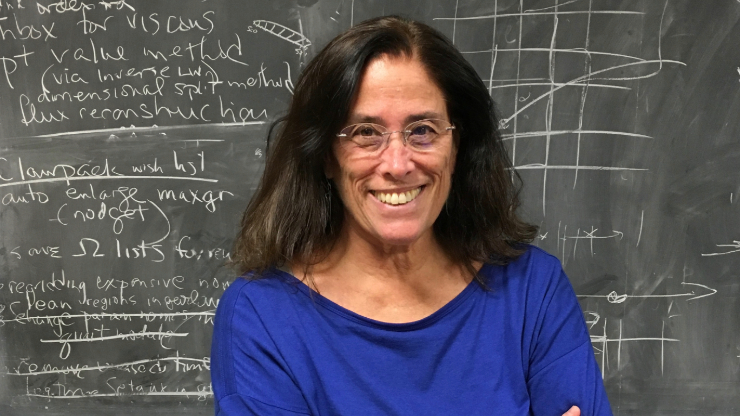2025 June Prize Spotlight
Dr. Simon Telen, Max Planck Institute for Mathematics in the Sciences, is the recipient of the 2025 SIAM Activity Group on Algebraic Geometry Agnes Szanto Early Career Prize. Dr. Telen received the award for "groundbreaking contributions to applied algebraic geometry and computational methods in particle physics, particularly through innovative work on Landau discriminants and their applications.” He will deliver a talk titled “Discriminants in Particle Physics” at the 2025 SIAM Conference on Applied Algebraic Geometry on Tuesday, July 8, at 5:45 p.m. CT.
The SIAM Activity Group on Algebraic Geometry Agnes Szanto Early Career Prize is awarded every two years to one outstanding early career researcher in the field of algebraic geometry and its applications for distinguished contributions to the field in the three calendar years prior to the year of the award. The contributions must be contained in a paper or papers in English in peer-reviewed journals. In 2024, the prize was renamed in memory of mathematician Agnes Szanto.

Dr. Telen is a research group leader at the Max Planck Institute for Mathematics in the Sciences (MPI MiS) in Leipzig, Germany. He leads the Numerical Algebraic Geometry group, which focuses on the intersection of algebraic geometry and symbolic-numerical computation. Dr. Telen earned his Ph.D in 2020 from the Catholic University of Leuven in Belgium, and held postdoctoral positions at MPI MiS and the Centrum Wiskunde & Informatica in Amsterdam. Recently, his research explored problems inspired by theoretical particle physics, including the study of Landau singularities and positive geometry. Learn more about Dr. Telen.
Q: Why are you excited to receive the award?
A: I am deeply honored and grateful to receive this award. It is both humbling and inspiring to have my contributions recognized by the applied algebraic geometry community, a group I am proud to be a part of. The prize motivates me to continue pushing the boundaries of research in this exciting field.
Q: What does your work mean to the public?
A: My work focuses on solving computational problems in algebraic geometry, bridging the gap between abstract mathematics and real-world challenges through both theoretical advancements and practical tools. A central theme in my research is solving systems of polynomial equations, which are fundamental to a wide range of applications. I have concentrated on areas such as optimization, statistics, and particle physics.
Q: Could you tell us about the research that won you the award?
A: My research on Landau discriminants aims to compute the singular locus of scattering amplitudes in particle physics. These amplitudes are essential for making predictions in particle collider experiments, such as those conducted at the Large Hadron Collider at the European Organization for Nuclear Research. By applying advanced methods from computational algebraic geometry, we were able to compute singularities in cases that were previously considered intractable.
Q: What does being a member of SIAM mean to you?
A: Being a member of SIAM has been a significant part of my academic journey. Since the beginning of my Ph.D, attending SIAM conferences has provided an excellent platform for networking, sharing research, and fostering collaborations. In particular, the relatively young SIAM Activity Group on Algebraic Geometry has played a crucial role in the growth and vibrancy of our applied algebraic geometry community.
Interested in submitting a nomination for the SIAM Activity Group on Algebraic Geometry Agnes Szanto Early Career Prize? The prize next opens for nominations on May 1, 2026.
Related Reading



Stay Up-to-Date with Email Alerts
Sign up for our monthly newsletter and emails about other topics of your choosing.



